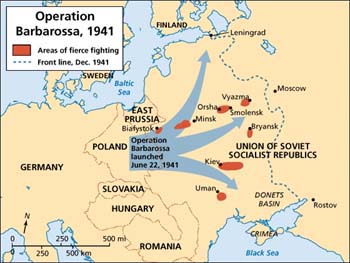daveman
Diamond Member
George believes every single penny belongs to the Government, who, in their benevolence, sometimes lets you keep a little.Ever see a farmer grow a plant?
Follow along with the video below to see how to install our site as a web app on your home screen.

Note: This feature currently requires accessing the site using the built-in Safari browser.
George believes every single penny belongs to the Government, who, in their benevolence, sometimes lets you keep a little.Ever see a farmer grow a plant?
Those numbers *ahem* assume that "the wealthy" will continue to produce resources to be looted by commie scum like the Berntard....History proves him wrong.
Of course, those looters will use their failure as evidence that even more looting is called for.
Would you rather depend on Wall Street's charity for your pennies?George believes every single penny belongs to the Government, who, in their benevolence, sometimes lets you keep a little.
Article 1, Section 8 says "coin money", which is a process of making specie...It doesn't say print up fake value out of thin air.Would you rather depend on Wall Street's charity for your pennies?
History of U.S. Money Creation - AFJM
"When the United States was founded, the U.S. Constitution, in Article 1, Section 8, gave Congress the power 'To coin money, regulate the Value thereof, and of foreign Coin, and fix the Standard of Weights and Measures.'
"However, it left open a gaping hole with regard to the role of banking and who should have the power to extend credit—the government or private interests.
"Should government depend upon borrowing money or be the sole authorized creator of it? How much power should private banks have?"
Sanders is of little consequence, he'll probably try again in 2024....and fail again
That wasn't a "hole," dumbass. It was intentional. The funding fathers didn't want the government to have a bank or the authority to print paper money.Would you rather depend on Wall Street's charity for your pennies?
History of U.S. Money Creation - AFJM
"When the United States was founded, the U.S. Constitution, in Article 1, Section 8, gave Congress the power 'To coin money, regulate the Value thereof, and of foreign Coin, and fix the Standard of Weights and Measures.'
"However, it left open a gaping hole with regard to the role of banking and who should have the power to extend credit—the government or private interests.
"Should government depend upon borrowing money or be the sole authorized creator of it? How much power should private banks have?"
Money's value comes from its ability to use it to pay taxes.Article 1, Section 8 says "coin money", which is a process of making specie...It doesn't say print up fake value out of thin air.
All Hail our God Government, Which loves us and will always take care of us!Would you rather depend on Wall Street's charity for your pennies?
History of U.S. Money Creation - AFJM
"When the United States was founded, the U.S. Constitution, in Article 1, Section 8, gave Congress the power 'To coin money, regulate the Value thereof, and of foreign Coin, and fix the Standard of Weights and Measures.'
"However, it left open a gaping hole with regard to the role of banking and who should have the power to extend credit—the government or private interests.
"Should government depend upon borrowing money or be the sole authorized creator of it? How much power should private banks have?"
Ho only pretends to run for president when he wants money. Hillary paid him $600,000 (from Russia) to do it in 2016 and Biden paid him $3 million (from China) in 2020.
Money's value comes from its ability to use it to pay taxes.
Perhaps a 100% reserve requirement would be useful?
History of U.S. Money Creation - AFJM
"In the early 1930s a collection of banking reforms was put forth by a group of economists at the University of Chicago. This plan, referred to as The Chicago Plan, actually did address the problems associated with bank creation of money.
"It recommended an abolition of the practice of Fractional Reserve banking, and a change to a 100% reserve requirement. Though it was supported by over 235 noted economists from 157 universities and colleges, it was never made law."
Like Operation Barbarossa?George, I wouldn't trust you to run a Little League bake sale without fucking it up. There's no way you and people like you can be trusted running a nation. History shows us what happens, and it always winds up with millions dead.

Hitler was a socialist, Commie, and so was Stalin.
"Thomas Jefferson and Alexander Hamilton famously argued over what sort of banking system the U.S. should have, with Hamilton advocating for the establishment of a national bank (modeled after the Bank of England) and Jefferson wanting the power to create a bank reserved for the States.That wasn't a "hole," dumbass. It was intentional. The funding fathers didn't want the government to have a bank or the authority to print paper money.

Nationalize money...not banks.What's your point?
Your plan is just as bad.Nationalize money...not banks.
Chicago plan - Wikipedia
"The core of the Chicago plan was to replace the fractional reserve system by insisting that banks always hold enough liquid assets to cover 100% of their loans, thus eliminating any danger of bank runs.[1]
"Banks would not be able to create money, and affect the money supply themselves: as Irving Fisher put it in 1936, the banks would be free to lend money 'provided we now no longer allow them to manufacture the money that they lend... In short: nationalize money, but do not nationalize banking'.[2]"
Nationalize money...not banks.
Chicago plan - Wikipedia
"The core of the Chicago plan was to replace the fractional reserve system by insisting that banks always hold enough liquid assets to cover 100% of their loans, thus eliminating any danger of bank runs.[1]
Hitler was a socialist, Commie, and so was Stalin.

Unfortunately for your dumbass theory, he was a socialist.
Hitler killed for money like all good capitalists.
Because...Your plan is just as bad.
Without fraud?w would banks lend money if they had to do that?